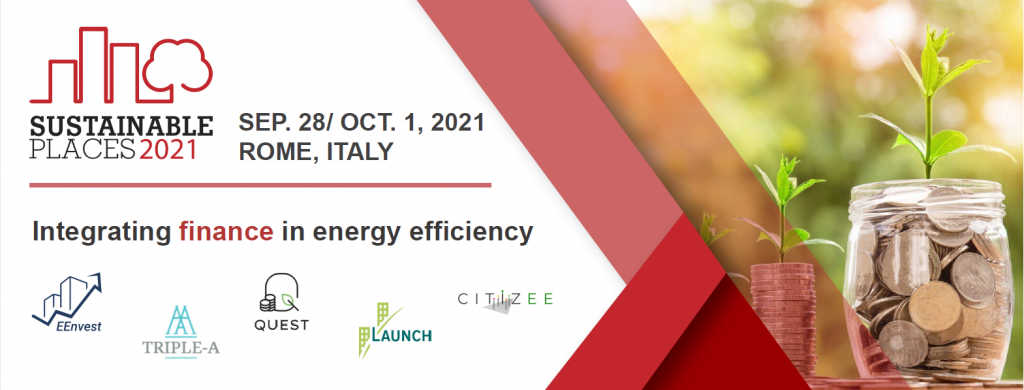"Integration of Finance for Energy Efficiency" workshop
17:00 – 18:30, 29th September 2021, hybrid

Energy efficiency is an integral part of global energy policy since it is not only widely recognized as an effective means of reducing greenhouse gas emissions, but also ensures the long-term security of the energy supply. Towards this direction, investing in energy efficiency directly affects reducing energy consumption, while also improving industrial competitiveness and driving economic growth. However, financial institutions and private investors do not consider energy efficiency as an attractive sector to invest in, limiting the possibility of using external private finance on top of equity of project owners or public funding. The lack of best practices and statistical data on the actual energy and cost savings achieved by implemented energy efficiency projects and payment default rates, causes financial institutions to attribute high-risk premiums to energy efficiency investments.
The building sector is considered of significant importance at the European Union level, as it is responsible for 40% of the energy consumption and 36% of greenhouse gas emissions. These trends are expected to grow given the fact that energy demand from buildings and their construction rates continue following the current trajectory, creating enormous untapped efficiency potential. In this respect, nowadays, boosting the implementation of energy efficiency measures in buildings is of paramount importance, more than ever. Mainstreaming energy efficiency financing is considered the only way to achieve the EU’s ambitious, compulsory for the environment goal of carbon neutrality by 2050.
Whereas energy efficiency investments are usually expected to be paid back exclusively through the reduction of the energy bill, there is increasing evidence that non-energy benefits play a key role in the decision to invest in energy efficiency. These benefits are known as the Multiple Benefits of energy efficiency and should also be considered in the investment decision process. Among others, the multi-benefits include an increase in the building value, lower tenant turnover or vacancy rates, better product quality, reduction of CO2 emissions, etc. Investments into building projects can be made more attractive by ensuring that investors get the results that they are looking for, as the calculated performance of buildings often mismatches with the real performance. Better integration of suitable quality management services into building projects is essential here, as they help assess and mitigate the technical risks which in turn de-risks the financial investments going into buildings.
A number of H2020 projects are developing innovative solutions to tackle the above challenges, and they joined forces for this common workshop at Sustainable Places 2021 to expose their approach and discuss potential synergies.
